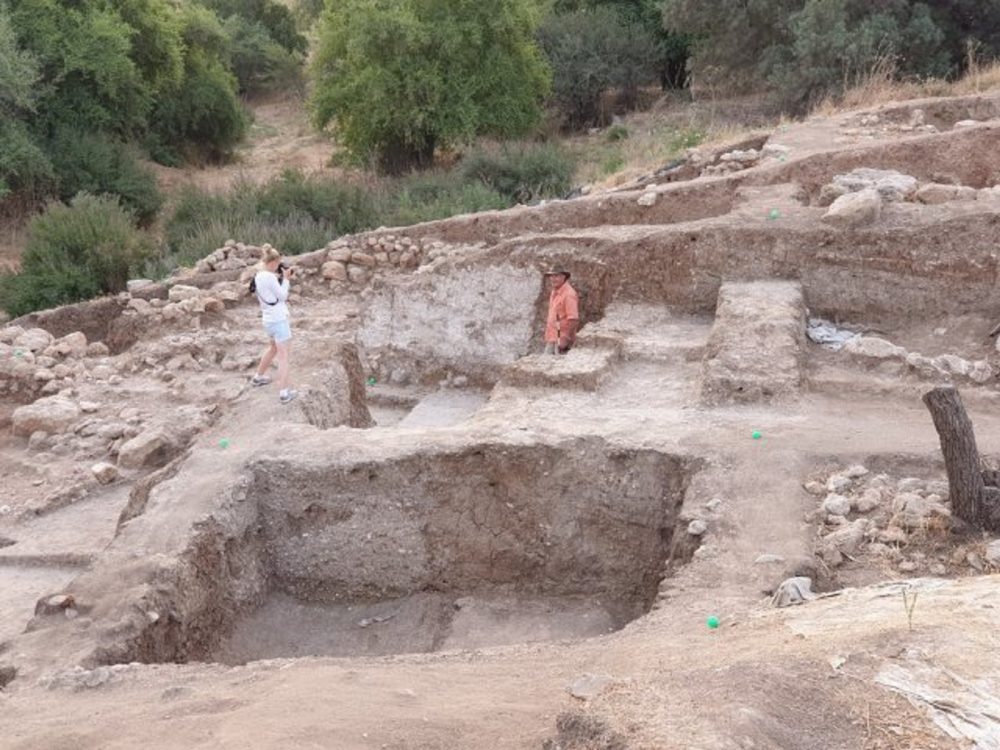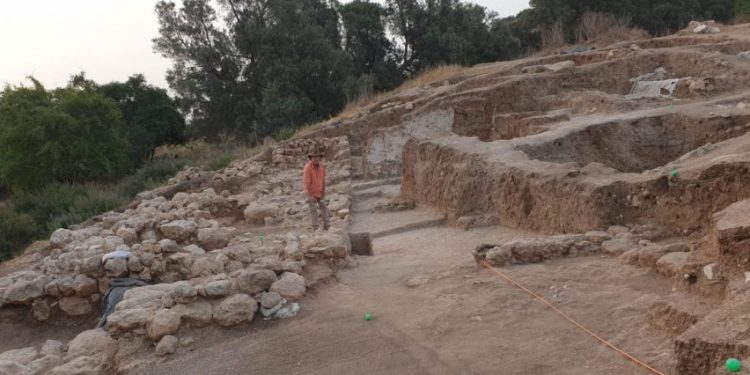Archeologists have reported exploring the 3,000-year-old city beneath Gath. The massive fortifications, buried beneath a previously excavated settlement in Southern Israel, most likely inspired Biblical traditions about Goliath and other supersized creatures.
Excavations of the ancient Philistine city of Gath have yielded springs, 3,00-year-old fortifications of a size freakishly large, for their time and place, reports Haaretz.
The discoveries made by experts may help scholars understand why the Bible names this specific town as the homeplace of Giants.
The megalithic ruins were discovered recently hidden beneath the remnants of an already known and explored layer of Philistine settlements.
The researchers indicate that they’ve come across the ruins of an older city, which was partially or even completely built over several centuries. The archaeological site known as Tell es-Safi is located in Southern Israel.
As its name indicates, the settlement is a tell–an artificial mound formed from the accumulated refuse of generations of people living on the same site for hundreds or thousands of years.

Goliath
According to the biblical account, Goliath was a giant soldier from Gat and a paladin of the Philistine army who besieged Israel’s troops for forty days.
In that story, he was defeated and wounded by David with a sling and a stone (1 Samuel 17: 4-23; 21: 9) and was beheaded with his own sword.
Goliath was extraordinarily tall for the average, even by current standards.
According to writings in the Bible, Goliath was 2.9 m tall. His chainmail of copper weighed 5,000 shekels (57 kg), and the iron blade of his spear 600 shekels (6.8 kg) (1 Samuel 17: 4, 5, 7).
In the Bible, it is written that David and Goliath confront each other, and Goliath enters the battle with his armor and javelin, David with his staff and sling.
“The Philistine cursed David by his gods”, but David replies: “This day the Lord will deliver you into my hand, and I will strike you down; and I will give the dead bodies of the host of the Philistines this day to the birds of the air and to the wild beasts of the earth; that all the earth may know that there is a God in Israel and that all this assembly may know that God saves not with sword and spear; for the battle is God’s, and he will give you into our hand.”
David throws a stone from his sling and hits Goliath in the middle of his forehead, Goliath falls on his face to the ground, and David cuts off his head.

The Philistine army flees and is pursued by the Israelites “as far as Gath and the gates of Ekron.”
But the above story was thought to have been just a myth.
However, the new find may shed some light on the story and help us understand more about it. If Goliath did exist in ancient times, his hometown might have been the one that archeologists recently discovered beneath the ruins of another city.
The archaeological discovery tells us that “Gath” rose to power much earlier than previously thought, reaching its peak around the time when the city appears heavily in the Biblical narrative as a fierce rival of the early Israelites.
“I’ve been digging here for 23 years, and this place still manages to surprise me,” revealed Aren Maeir, a professor of archaeology at Bar-Ilan University who leads the expedition in Gath.
“All along, we had this older, giant city that was hiding just a meter under the city we were digging.”
Archaeologists have been excavating the site of Philistine Gath for decades, uncovering along the way a plethora of buildings including massive temples, houses, oil presses, indicating a sprawling city, over 50 hectares in area, called home by as many as 10,000 people.
“This was the largest Philistine city and probably one of the largest in the Iron Age Levant,” Maeir explains.
“Larger cities were only found outside the Levant, such as in Egypt and Mesopotamia.”
Massive Structures
According to Haaretz, the summer’s digging campaign, which recently came to a conclusion, saw archaeologists study the foundations of large terraces located within Gath’s lower city, thought to have been inhabited during the Iron Age.
Archaeological excavations revealed that the massive terraces were resting on even larger fortifications and even buildings constructed of huge stone boulders and fired bricks – a method that makes them more durable than traditional sun-dried mud bricks.
Archeologists report that the walls are four meters thick or more in some areas of the ancient city. Pottery fragments discovered at the site have been found to date back to the early Iron Age, to the 11th century B.C.E., or possibly earlier.
In fact, the structures are so impressive that experts say there are no comparably colossal structures in the rest of the Levant from this period – or even from the later incarnation of Philistine Gath.
“Whatever it is, it’s enormous,” Maeir told Haaretz. “It’s as if the site of Gath in the early Iron Age dwarfed the later city.”
Join the discussion and participate in awesome giveaways in our mobile Telegram group. Join Curiosmos on Telegram Today. t.me/Curiosmos











